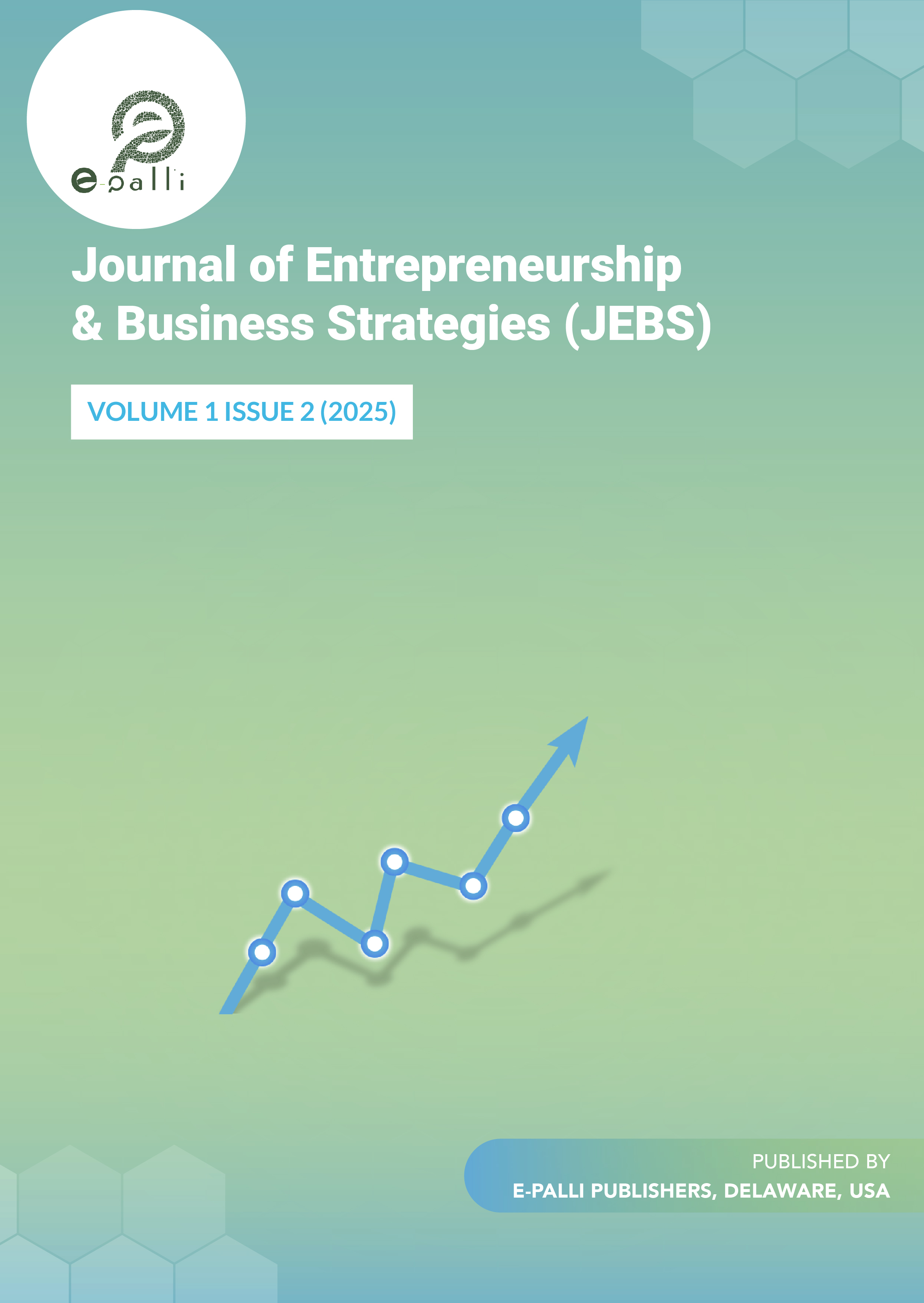The Effect of Supply Chain Management on Organizational Performance at Ileys Enterprise Company in Buroa Somaliland
Keywords:
Customer Relationship, Ileys Enterprise Somaliland, Information Sharing, Organizational Performance, Strategic Supplier Partnership, Supply Chain ManagementAbstract
This study assessed the effect of supply chain management practices on the organizational performance of Ileys Enterprise in Buroa, Somaliland. The study focused on four core dimensions: Strategic Supplier Partnership, Customer Relationship, Level of Information Sharing, and Quality of Information Sharing. A mixed-methods approach was employed, utilizing both descriptive and explanatory research designs. The study applied a structured questionnaire to a census of 187 employees, achieving a 100% response rate. Quantitative data were analyzed using SPSS version 27, with descriptive statistics (mean, standard deviation) and inferential statistics (correlation and multiple linear regression analysis) to assess relationships among variables. Qualitative responses from open-ended questions were thematically analyzed to support the statistical results. The regression findings revealed that Strategic Supplier Partnership (β = 0.331) and Quality of Information Sharing (β = 0.297) had the strongest positive effects on organizational performance. Customer Relationship (β = 0.258) was also statistically significant, while Level of Information Sharing (β = 0.120) showed a weaker, marginally significant effect (p = .059). The model explained 37.0% of the variance in organizational performance (R² = 0.370), indicating moderate predictive power. Qualitative insights supported these results, highlighting that customer responsiveness and supplier coordination were the most effective practices, while information-sharing systems remained underdeveloped. The study concludes that enhancing supplier collaboration and improving the accuracy and reliability of shared information are essential for boosting organizational performance. It recommends greater investment in real-time information systems, supplier engagement strategies, and internal integration of supply chain functions to strengthen organizational outcomes.
References
Chen, I. J., & Paulraj, A. (2004). Towards a theory of supply chain management: The constructs and measurements. Journal of Operations Management, 22(2), 119–150. https://doi.org/10.1016/j.jom.2003.12.007
Chileshe, M. J., & Phiri, J. (2022). The Impact of Supply Chain Management Practices on Performance of Small and Medium Enterprises in Developing Countries: A Case of Agro-Dealers in Zambia. Open Journal of Business and Management, 10(02), 591–605. https://doi.org/10.4236/ojbm.2022.102033
Creswell, J. W. (2014). Research design: Qualitative, quantitative, and mixed methods approaches (2. ed., [Nachdr.]). Sage Publication.
Hura, O. A., & Dushimimana, J. de D. (2024). Effect of Warehouse Management on the Organizational Performance in a Manufacturing Company. A Case of Cimerwa Limited in Rusizi District-Rwanda. Journal of Procurement & Supply Chain, 8(1), Article 1. https://doi.org/10.53819/81018102t2324
Li, S., Ragu-Nathan, B., Ragu-Nathan, T. S., & Subba Rao, S. (2006). The impact of supply chain management practices on competitive advantage and organizational performance. Omega, 34(2), 107–124. https://doi.org/10.1016/j.omega.2004.08.002
Manuela, P. G. C. (2019). The Impact of Supply Chain Management Processes on Competitive Advantage and Organizational Performance. Strategic Journal of Business & Change Management, 6(2). https://doi.org/10.61426/sjbcm.v6i2.1022
Mentzer, J. T., DeWitt, W., Keebler, J. S., Min, S., Nix, N. W., Smith, C. D., & Zacharia, Z. G. (2001). Defining Supply Chain Management. Journal of Business Logistics, 22(2), 1–25. https://doi.org/10.1002/j.2158-1592.2001.tb00001.x
M.Kowsalya, D. (2024). Supply Chain Management and Organizational Performance: An Empirical Investigation. SSRN. https://doi.org/10.2139/ssrn.4783311
(PDF) A Framework for Reducing the Impact of Disruptions to the Supply Chain: Observations from Multiple Executives. (n.d.). Retrieved 7 January 2025, from https://www.researchgate.net/publication/237278270_A_Framework_for_Reducing_the_Impact_of_Disruptions_to_the_Supply_Chain_Observations_from_Multiple_Executives
Sangari, M. S., Hosnavi, R., & Zahedi, M. R. (2015). The impact of knowledge management processes on supply chain performance: An empirical study. The International Journal of Logistics Management, 26(3), 603–626. https://doi.org/10.1108/IJLM-09-2012-0100
Slam, Md. R. I., Monjur, Md. E. I., & Akon, T. (2023). Supply Chain Management and Logistics: How Important Interconnection Is for Business Success. Open Journal of Business and Management, 11(05), 2505–2524. https://doi.org/10.4236/ojbm.2023.115139
Stroumpoulis, A., & Kopanaki, E. (2022). Theoretical Perspectives on Sustainable Supply Chain Management and Digital Transformation: A Literature Review and a Conceptual Framework. Sustainability, 14(8), 4862. https://doi.org/10.3390/su14084862
Weeks, K., & Mileski, J. (n.d.). The Impact of Resource Commitment, Product Route Efficiency on Supply Chain Performance and Profitability: An Empirical Case Analysis.
Zailani, S., Jeyaraman, K., Vengadasan, G., & Premkumar, R. (2012). Sustainable supply chain management (SSCM) in Malaysia: A survey. International Journal of Production Economics, 140(1), 330–340. https://doi.org/10.1016/j.ijpe.2012.02.008
Downloads
Published
How to Cite
Issue
Section
License
Copyright (c) 2025 Abdikarim Ali Mohamed

This work is licensed under a Creative Commons Attribution 4.0 International License.



